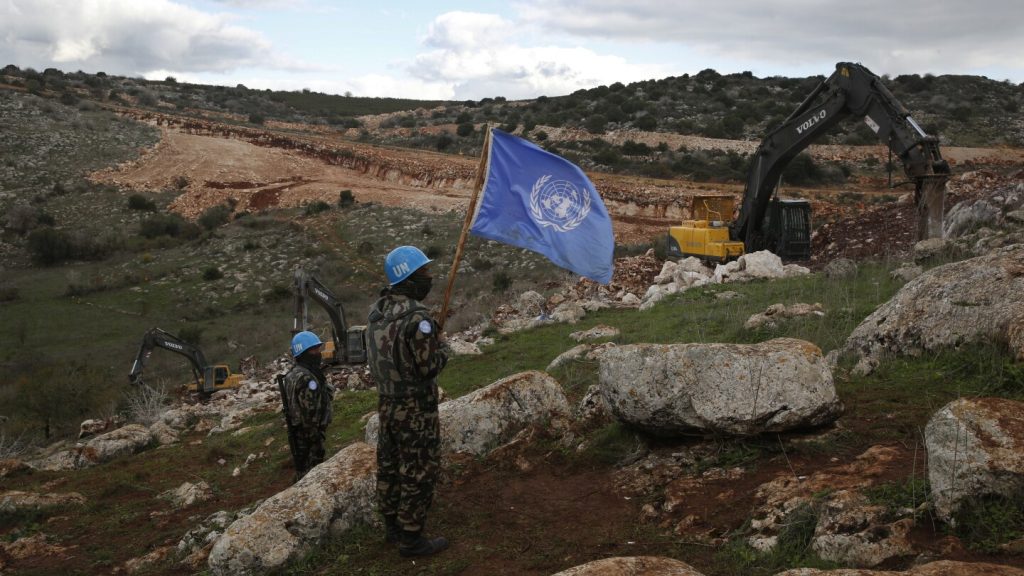Beirut, The war between Israel and Lebanon’s Hezbollah group is escalating, with a United Nations peacekeeping force in Lebanon increasingly becoming a target. Israeli troops have fired at the peacekeepers’ headquarters and positions multiple times over the past week, leading to international criticism. The United Nations Interim Force in Lebanon (UNIFIL), consisting of 10,000 peacekeepers, has been patrolling the border area between Lebanon and Israel for nearly 50 years. Israel is demanding that the peacekeepers leave the area, further straining relations.
UNIFIL was established in 1978 to oversee the withdrawal of Israeli troops from southern Lebanon following multiple Israeli invasions. The force monitors the Blue Line, a boundary between Lebanon and Israel drawn up by the U.N. UNIFIL’s responsibilities expanded after the 2006 war between Israel and Hezbollah, allowing peacekeepers to deploy along the Israeli border and patrol a buffer zone. Currently, around 10,000 peacekeepers from 50 countries, including 16 EU countries, serve in southern Lebanon. Despite being lightly armed, their role is mainly observational, involving patrols, monitoring, and reporting violations of U.N. Security Council Resolution 1701.
Tensions have heightened since Israel launched its ground invasion of Lebanon, prompting Israel to request UNIFIL to relocate further north, a request that was refused by the peacekeeping force. Recent incidents include an Israeli tank firing on UNIFIL’s headquarters in Naqoura, injuring two Indonesian peacekeepers. On subsequent days, there were more explosions near the headquarters, and Israeli troops clashed with peacekeepers at a base. Israel claims these incidents were responses to threats posed by Hezbollah, who they allege operate near UNIFIL positions.
Israeli forces have expressed concern over the incidents involving UNIFIL and have stated that they are conducting reviews at the highest levels of command. The Israeli military has maintained that their actions are aimed at Hezbollah, and they have tried to maintain communication with UNIFIL. Israeli Prime Minister Netanyahu has called for the peacekeepers to be removed from the danger zone. However, UNIFIL is mandated by the U.N. Security Council, and international leaders have emphasized that decisions regarding the force’s deployment are not within Israel’s jurisdiction.
Israel’s demands for UNIFIL to evacuate the border area and move north could hinder the peacekeepers’ ability to carry out their mission effectively. The U.N. peacekeeping chief has reported that operations have been halted due to air and ground attacks in the region, preventing patrols and challenging the resupply of essential resources. Some peacekeepers have been temporarily relocated from front-line positions to larger bases, and UNIFIL has reduced its footprint in the most affected areas. The situation poses a threat to the mission’s ability to fulfill its mandate and maintain peace and stability in southern Lebanon.















